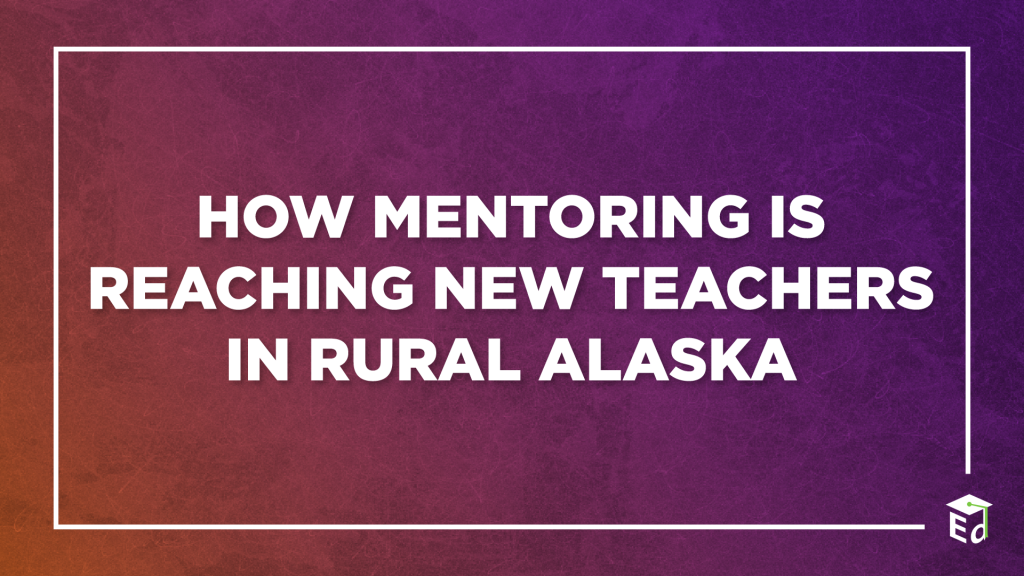By: Abigail Swisher, Rural Impact Fellow, Office of Elementary and Secondary Education
Spanning 37,000 miles across Alaska, the Northwest Arctic Borough School District has struggled to hire and retain enough new teachers. The eleven villages within the district – many of them above the Arctic Circle – are sparsely populated and remote. The winters are long, and without easy connection to roads, teachers new to the area often feel the isolation of remote village life.

Early-career and out-of-state teachers tend to be most heavily concentrated in Alaska’s rural schools, where they face a steep curve in adjusting to a new way of life while learning the ropes of teaching. As Northwest Arctic Borough Superintendent Terri Walker explains, “Our new teachers really have to learn everything: a new culture, sometimes a new language, new teaching skills, a new curriculum, customs and traditions of our kids, and the culture of our schools,”
But Northwest Arctic has found one approach to help their new teachers thrive in the classroom: A mentoring program that pairs new teachers with experienced educators from across Alaska.
The Alaska Statewide Mentor Project (ASMP) connects new teachers often isolated by physical distance with experienced mentor teachers who help them learn the skills to fit their unique cultural context. Mentors and mentees connect virtually each week and in-person several times per year, which usually requires long journeys involving travel by bush plane, boat, dog sled and/or snowmobile.
Mentors help new teachers develop culturally responsive practice, building on Alaska’s statewide standards for culturally responsive teaching. Roughly seventy percent of new teachers in Alaska’s rural and isolated schools come from out of state, so the program focuses on helping teachers learn their students’ cultural context and work to integrate into their community.
Cultural knowledge is crucial for new teachers in Northwest Arctic Bureau, whose student population is ninety percent Inupiaq. Superintendent Walker says that the district’s work is deeply centered in preservation of the unique heritage and values of Inupiaq culture; their motto is “Atautchikun Iñuuniałiptigun (Through Our Way of Life Together as One).”
In the 2023-24 school year, ASMP served roughly 140 new teachers across the state. Many schools share the cost of participation for their new…
Click Here to Read the Full Original Article at ED News…

